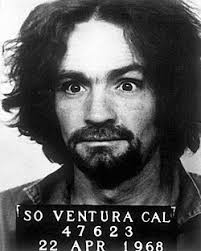The Legacy of Charles Manson: Cult Leader and Criminal

Introduction
Charles Manson remains one of the most notorious figures in American criminal history. His name is synonymous with crime, manipulation, and a dark period of the 1960s. Manson led a cult known as ‘The Family,’ instigating a series of horrific murders that captured national attention and left a lasting impact on society’s perception of cults and criminal psychology.
Manson’s Early Life
Born on November 12, 1934, in Cincinnati, Ohio, Charles Manson’s formative years were marked by instability and delinquency. He spent much of his youth in juvenile facilities before being incarcerated for theft and other crimes. After his release in the 1960s, Manson turned to the counterculture movement, attracting followers and forming a commune in California.
The Family and the Murders
Manson’s cult, comprised mainly of young women who were drawn in by his charisma and promises of an alternative lifestyle, became infamous for the Tate-LaBianca murders in August 1969. Manson believed in an impending apocalyptic race war and orchestrated these brutal killings to incite chaos and ultimately lead his followers to power. The subsequent arrests and trials led to a media frenzy, with Manson’s eccentric behavior only heightening his notoriety.
The Trial and Incarceration
Following the murders, Manson was convicted of first-degree murder and conspiracy to commit murder in 1971. He was sentenced to death, a sentence that was later commuted to life in prison when California abolished the death penalty. Manson spent nearly five decades in prison, where he continued to attract attention and generate controversy until his death on November 19, 2017.
The Cultural Impact of Manson
Charles Manson’s legacy extends beyond his criminal actions; he has become a cultural icon of fear and manipulation. His life story has inspired numerous documentaries, books, and films, as society grapples with the questions of cult influence, psychological manipulation, and the roots of violence. Manson’s case has influenced discussions on mental health, social phenomena, and criminal justice, highlighting the tensions and dynamics of American culture during the 1960s and 1970s.
Conclusion
The impact of Charles Manson on American society is complex, reminding us of the potential for charismatic individuals to lead others astray. As discussions about cults and radicalization continue to evolve, understanding Manson’s legacy provides valuable insights into the psychological and societal factors that can lead to extremism and violence. His life and the horrific events he caused serve as a cautionary tale about the darker aspects of human nature.








